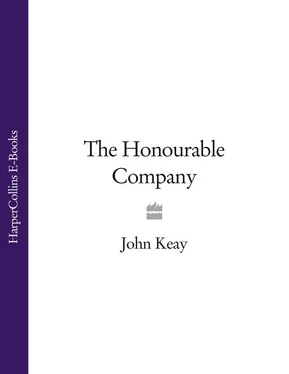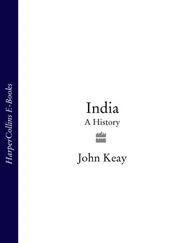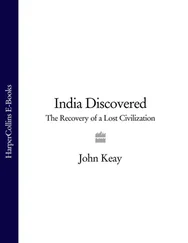Naturally Weddell was never so welcome. The Persians hailed his timely arrival as evidence of divine intervention and quickly explained what was expected of him. Though often dubbed ‘the stormy petrel’ of the Company’s commanders, Weddell hesitated. There was some doubt about whether morally the English should side with a heathen prince against fellow Christians, albeit of the most detested persuasion; there was good reason to suppose that a skipper’s right to defend himself on the high seas did not extend to taking the offensive against a land base belonging to a nation with whom England was supposedly on good terms; and there was the absolute certainty that what the Surat President (or Chief Factor) chose to call ‘this airye enterprise’ would be censured by their employers on the grounds of cost, risk and delay.
Yet this was all by the by. The Persians were offering attractive incentives – like a contribution to costs, a share of the plunder, increased trading rights, customs exemption, and half the proceeds from the customs of the nearby port of Gombroon (Bandar Abbas, Bandar Khomeini) – and they were backing them with some unthinkable threats. Unless the English co-operated they could expect to leave without a cargo and without a trading future in Persia.
Under the circumstances and after much heart searching and persuasion, Weddell declared that he had no choice. Accordingly on 23 January 1622 ‘it was resolved to invite our enymies to a banquet of fire flying bullits’. The Portuguese refused to relinquish the safety of Hormuz’s batteries so the English went into Qishm. Guns were landed and on 1 February ‘the Pertian general and wee hand in hand’ took possession of Qishm fort. It was probably the first time that the cross of St George had flown beside the Shah’s ensign. Ruy Freire was among the prisoners and was duly sent to Surat. But the English too had lost a valued Captain. ‘The man who we shall find the greatest miss of’, wrote Weddell, ‘is Mr Baffin who was killed outright with a muskit on shoare.’ Apparently he ‘gave three leaps and died immediately.’ In a grave of Persian sand the Arctic explorer was laid to rest.
The Persian troops were now ferried across to Hormuz and on 9 February the main siege began. Mining and tunnelling to great effect the Persians breached the walls; but more Portuguese poured out than Persians in. For two months, while the English concentrated on battering the enemy’s ships to extinction, the issue remained in doubt. Without hope of relief the Portuguese yet defended valiantly. In the end it was disease as much as destruction that gradually undermined their position. A second breach was repaired but, knowing a third must prove fatal, on 23 April the garrison surrendered and Albuquerque’s fortress fell to the allies. It was indeed St George’s Day.
Subsequent squabbles somewhat obscured the achievement. Weddell and his men would be held responsible for the general pillage that took place and would be suspected of having made off with much of the booty. Moreover, the Company’s complaints about the cost of the operation would be doubly compounded, first by the Lord High Admiral demanding a £10,000 share of the supposed proceeds and then by the King demanding a similar sum for ignoring the inevitable diplomatic protests from Lisbon. But on the credit side, English prestige throughout the East now soared. ‘If you may have possession of Ormuz’, wrote President Fursland from Bantam, ‘Your Worships may reckon that you have gotten the keye of all India.’ He had just presided over the English withdrawal from the Spice Islands, Japan and Siam. Success at Hormuz and the vitality of the Persian trade was a greater compensation than anything that had been achieved within the realm of the Moghul; it would be ‘a bridle to our faithless neighbours the Dutch and keepe all Moores in awe of us’. Without doubt the capture of Hormuz was the most sensational proof yet afforded of the Company’s naval might in Asia.
The Portuguese took their loss to heart. In Lisbon the commander of the Hormuz garrison was tried in his absence and hanged in effigy. Fleets from Goa attempted to blockade Gombroon, the port to which the English had removed from Jask, and in 1625 they precipitated another titanic engagement. It was ‘thought to be one of the greatest that ever was fought’ according to Weddell who again commanded the English contingent and who was not given to exaggeration. But this time he had a new ally. The Dutch had duly noted English successes in the Arabian Sea and had opened their own factory at Surat. They still regarded the Portuguese as their natural foe and, by that Treaty of Defence which proved so disastrous for the English in the Archipelago, they were officially in alliance with the Company. Thus Weddell’s four ships were now joined by a Dutch fleet of similar size.
In all sixteen vessels plus a host of frigates and pinnaces were involved. The battle raged for three days and a final reckoning seemed to give victory to the allies; to their sixty dead it was claimed that the Portuguese had lost nearly 500. But this must have been an exaggeration for six months later the same Portuguese fleet was back in Persian waters and taking its revenge. It fell on the ill-starred Lion, a ship of about 400 tons crewed, if John Taylor, ‘the water-poet’, is to be believed, entirely by heroes. At their first attempt the Portuguese detached the Lion from her fleet, partially fired her, then boarded her and took her in tow. The English prepared to blow her up, but ‘God in his wisdome stayed us by putting it into the mind of some of our men to let fall an anchor’.
Which being done (the tide running very strong) brought our ship to so strong a bitter [i.e. halt] that the fast which the Portugals had upon us brake, whose unexpected suddaine departure from us left 50 or 60 of their men upon our poope, who still maintained their fire in such sort that we were forced to blow them up, which blast tore all the sterne of our ship to peeces from the middle decke upwards.
Miraculously the Lion, charred, battered and half demolished, was still afloat. She limped into Gombroon, discharged her cargo, and was promptly assailed by another Portuguese squadron. This time there was no escape. Forty-two men died as they finally blew up the ship, twenty-six were captured and beheaded, and of the rest all except ten had fallen in battle. ‘Thus was this good ship and men unfortunately and lamentably lost’, writes Taylor with admirable restraint, ‘yet as much courage and manly resolution as possibly could bee was performed by the English, nor can it bee imagined how more industry and truer valour could have been shewed.’
Nothing fuelled English resolve like a magnificent disaster. When word reached Surat that the Portuguese had ‘got into a hole called Bombay’ to refit, Weddell’s Anglo-Dutch fleet stormed down the coast. They were too late; the enemy had fled leaving only the town for the English to avenge themselves on. Thus, in October 1626, the first English to visit Bombay came as raiders. Warehouse, friary, fort and mansions were put to the torch along with two new frigates ‘not yett from the stocks’. A wild notion that this ‘excellent harbour’ with its ‘pleasant fruitfull soil’ might be worth occupying was scouted but firmly rejected as far too provocative.
Hostilities with the Portuguese rumbled on. The eventual peace which was signed at Goa in 1635 by William Methwold, now President at Surat, should have changed the whole balance of maritime power in the East. That was how the Dutch and the Moghul emperor saw it and they bitterly opposed it. It opened to the English Goa itself, the Portuguese settlements on the Malabar coast, and numerous other ports from Basra in Iraq to Tatta in Sind and Macao off the Chinese mainland. It would also last indefinitely, thus ironically enabling the Portuguese settlements in India to survive even the British Raj. But at the time its possible advantages were not paramount. The main point was that neither the Portuguese nor the English could afford to go on quarrelling. Thanks mainly to the Dutch in the East and the Spanish at home, the Portuguese empire was in an advanced state of decline. (In 1641 Malacca itself would fall to the Dutch.) And as for the English, the London Company was now approaching what may be regarded as the nadir of its eastern commerce.
Читать дальше












